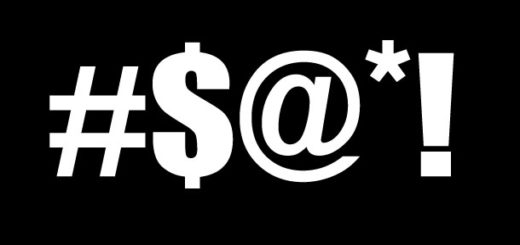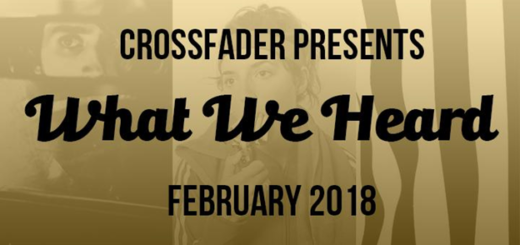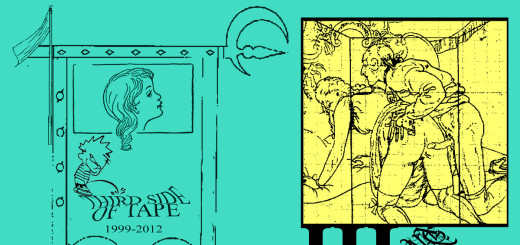Crossfader’s Tribute to David Bowie
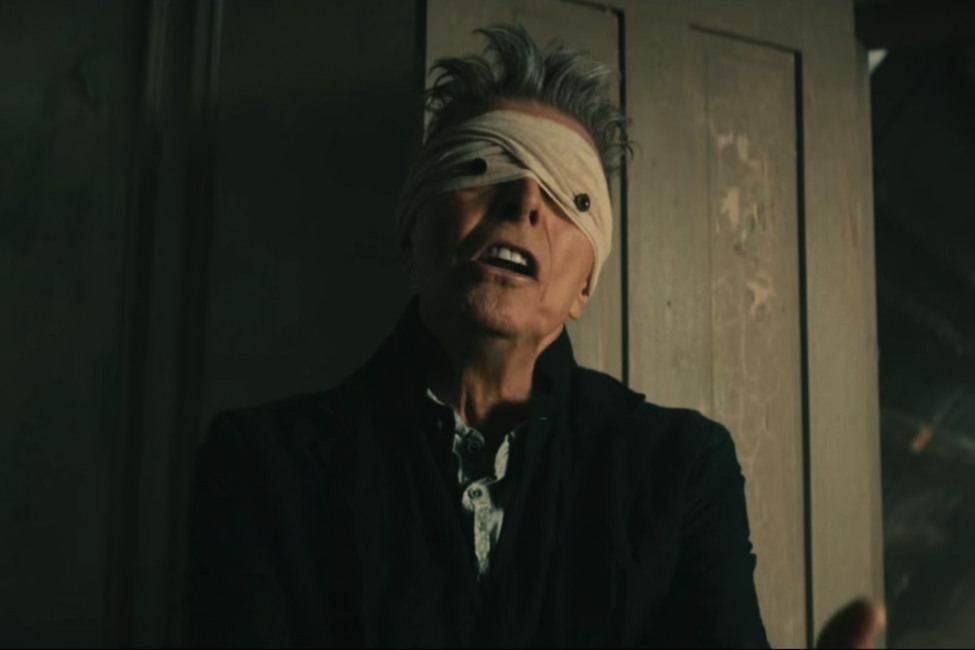
David Bowie has died and the music world will legitimately never be the same again. Truth be told, he went far beyond just music; he impacted cinema, high art and commercial art. Many, many people credit him as their introduction to the very concept of art, period. Punk rock owes its sense of independence to him, heavy metal owes its theatricality to his incredible performances, and pop – well, pop obviously owes him everything. Bowie had a Lennon-McCartney level knack for pop hooks, and his ability to reinvent himself on almost every record in his 27 album catalog is probably what will keep him an enduring rock icon so long as people continue to listen to rock music.
Perhaps what really made Bowie remarkable, however, was his uncanny ability to make you feel like he was speaking directly to you. The real magic of Bowie was putting him on your stereo at the age of 14 and melting into his music. It was that feeling of going through all of HUNKY DORY or THE RISE AND FALL OF ZIGGY STARDUST and having the sensation that a close friend was sitting on the edge of your bed, speaking directly to you. “You’re all right, I promise. There’s this whole other world out there, let me show it to you.” Bowie crafted danceable, singable, massively appealing music, but at its heart it always came from that same source. By being so many different people, Bowie ultimately created the notion that he was being entirely himself; an ability that led him to make everyone else feel all right for being the freak that they are. He took your hand and made you feel fantastic, then took you with him to outer fucking space. Obviously there is much more that could be said about him and his impact, but at a certain point brevity is simply more fitting. There will never be another musician who strikes the exact same nerve he did, as well as he did, and we were all lucky to have him while we did.
Here are his songs that impacted us the most. – Carter Moon, Crossfader Music Editor
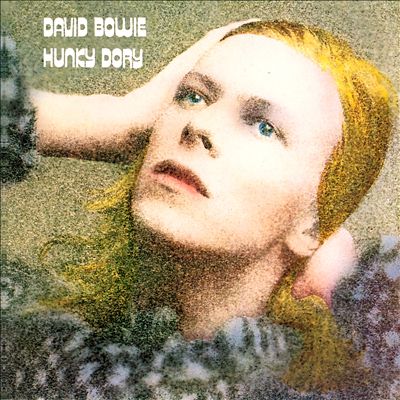
“The Bewlay Brothers” from HUNKY DORY
“We were so turned on/By your lack of conclusions”
I found my way to Bowie through my father who would jump start our morning rides to school with 1971’s HUNKY DORY. “The Bewlay Brothers” was the last song recorded for his fourth LP, an album nestled in-between the bite of THE MAN WHO SOLD THE WORLD and the galactic grooves of THE RISE AND FALL OF ZIGGY STARDUST AND THE SPIDERS FROM MARS. “The Bewlay Brothers” was a song written to perplex Bowie’s lot of lyrical shrinks who love to finely comb through his poetic moxie.
“Now my Brother lays upon the Rocks/
He could be dead, He could be not.”
Thought by some to be a scrutiny of the mind of Bowie’s schizophrenic half-brother Terry Burns, others just revel in the track’s creative imagery.
“And how they bought their positions with saccharin and trust/
And the world was asleep/to our latent fuss.”
“The Bewlay Brothers” culminates in an eerie séance of harmonies howling, “Lay me place and bake me Pie I’m starving for me Gravy/Leave my shoes, and door unlocked/I might just slip away.” Maybe Bowie was trying to dilute the track’s meaning and dissociate audiences from all sense. Regardless, what makes “The Bewlay Brothers” so enticing is its enigmatic blend of whimsical anecdotes and untidy acoustic chord progressions.
If there’s any truth to be found in The Bewlay Brothers trove of arbitrary lyrical phrases, it’s only uncovered by the infinite number of interpretations that can be extracted from every listen.
“And so the story goes.” – Sabina Fooks, Crossfader guest contributor
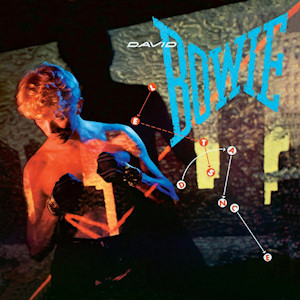
“Modern Love” from LET’S DANCE
There’s a brief montage in the tremendous Noah Baumbach film FRANCES HA in which we see our titular character (played by Greta Gerwig) running joyously down the streets of New York City. There’s something carefree about her movements, a combination of running and skipping and all around frolicking, though we as an audience know that Frances tends to be bogged down by her own insecurities and shortcomings. We know that this joy, while real, is probably fleeting. Naturally, this moment is soundtracked by “Modern Love,” a song that highlights the simplistic happiness that runs through mundane activities like running through New York City. When she gets into her apartment and shuts the door, the song cuts off. And sheepishly, she looks around her borrowed apartment as if something grand has happened. Although the moment is only 56 seconds long, “Modern Love” fuels all the happiness and sadness that can exist in the pedestrian moments we don’t think about, a moment captured perfectly here in FRANCES HA.
“Modern Love” is by no stretch David Bowie’s most profound song. It’s not the headiest song, or the catchiest song, or the prettiest song. But secretly it’s all of those things. When the news of Bowie’s passing became a reality, my instinct was to put on “Modern Love,” not just because it’s my favorite Bowie track, but because in that moment I needed someone to capture the happiness and the sadness that exists in the pedestrian moments we often don’t think about. This pedestrian moment was a group of people reveling in the crushing reveal of a celebrity death, something that has zero effect on our lives but each one of us takes personally. Because when it all comes down to it, “Modern Love” is a song you can cry to and a song you can dance to, and when you find out the Thin White Duke has passed on, those are the emotions you experience. – CJ Simonson, Crossfader guest contributor
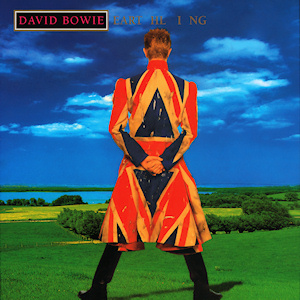
“Dead Man Walking” from EARTHLING
Alright, time to shake things up. If you read that lovely intro again, it calls for the David Bowie songs that impacted us the most, not necessarily the David Bowie songs that are the objective best. Which brings us to the midpoint of 1997’s EARTHLING, an often overlooked Bowie album (for not entirely incorrect reasons). Listen to “Dead Man Walking” and you’ll hear Bowie do a passable job of commandeering an arsenal of synth wails and white boy, industrial-inflected drum ‘n’ bass loops that reek of the 90s. It’s certainly not bad, but I think we can all agree the man has stronger stuff in his catalogue. But before I run the risk of speaking ill of the dead, allow me to digress.
It was winter break of 2009, as I recall, right around my peak as an internet music pirate. Back in those days amongst my circle of friends, whoever had the iPod with the largest amount of gigabytes and largest variety of songs was the king of the castle. Having just crashed yet another computer with my itchy “Save As…” right clicks, I was in the market for CDs. And lo and behold, I found an extensive collection in the attic of a good friend’s house, almost all of which were collected by his mother in the 90s. Counting Crows’ first three albums? Toss ‘em in! That collection of Nirvana demos? Sure, why not! 90s David Bowie? Huh?
You see, last time I had encountered David Bowie was on the GUITAR HERO tracklist back in 06/07. Entirely obsessed with Black Sabbath at the time, I turned my nose up at anything that didn’t feature distortion and technically diverse guitar solos, so I had no time for “Ziggy Stardust,” thank you very much. But considering that the tracklist contained absolutely nothing I had heard by that time, I threw it on my iPod anyway.
While playing “Dead Man Walking” for the first time (I chose it first out of all the songs because death is edgy, obviously) I was sent reeling simply because I had not heard any of the sounds presented to me on that track before. Coming from a recent strict diet of System of a Down and Death Cab for Cutie, anything with a programmed drum machine was sure to blow my tiny little mind. And boy howdy, were these drums programmed! Within seconds, that rollicking romp of a drum beat and those piercing arpeggiated synths had whisked me away to a Wikipedia search bar that would soon present the sounds of the 90s to my virgin ears.
As hard as it is to believe, it is because of “Dead Man Walking” that I discovered Nine Inch Nails and Marilyn Manson, who, while both matters of subjective taste, are nonetheless an important phase of anybody’s musical education. It is because of these artists that I sought out “Best of the 90s” lists, which opened my eyes to grunge, shoegaze, electronic, and hip hop. It is because of this discovery that the groundwork was laid for the rest of my musical self-education. So, David Bowie, I would like to thank you for EARTHLING and “Dead Man Walking” (something you probably didn’t hear that much while you were alive), as they played a larger part in my personal history than I often take the time to appreciate. – Thomas Seraydarian, Editor-in-Chief
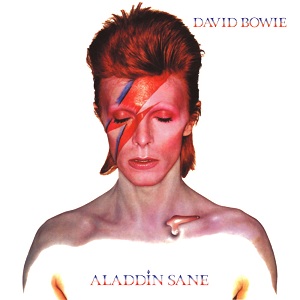
“The Jean Genie” from ALADDIN SANE
This is the perfect intersection of the best Bowie personas; half Ziggy Stardust, half street-walker, this strung-out, decadent and filthy Bowie will always be my personal favorite. A blues-rock riff rivaling anything Keith Richards ever did drives the track, creating this intoxicating sense of menace and seduction, like a night in a city that could take you anywhere – it’s timeless. There’s a sense that there’s an equal chance Bowie will ask you to climb into his spaceship as there is that he will ask you to shoot up in alleyway with him. It’s raw, unfiltered rock and roll, Bowie style. – Carter Moon, Crossfader Music Editor

“‘Heroes'” from “HEROES”
To my knowledge, my parents have only ever owned one David Bowie album. I have distinct memories of seeing a young David Bowie, swooping his tall hair up and looking in no particular direction, hands in a strange formation, popping up on our iTunes, my mom’s iPod, and our big black folder full of CDs. “HEROES” is not my favorite David Bowie album and it doesn’t have many songs that I outright like, but the title track of the album is something special. “Heroes” is just the kind of positive, triumphant, and still incredibly ironic song that an artist as eccentric and varied as David Bowie would make. “Heroes” has the heady synths of the best collaborations with Brian Eno, the cool guitar riffs of Robert Fripp, and of course David Bowie’s voice, growing increasingly louder as he laments two star-crossed lovers in the shadow of the Berlin Wall.
The song is about perseverance and tenacity; the human need to survive in the face of insurmountable odds; Bowie’s own celebration of the weird, his desire to do exactly what he wants; all themes that are especially relevant to the time period and location where the song was recorded – Berlin in the midst of the Cold War, in a recording studio disturbingly close to the Berlin Wall, a country living in a totalitarian government that had only really existed in fiction before then. It was a time and a place in desperate need of hope. Ironically, “Heroes” is also about how those moments can never last (“We can be heroes, just for one day”), that peace and good times are temporary and transient like Bowie’s various identities and ultimately like life itself. It’s for these reasons that “Heroes” is the quintessential David Bowie song in my eyes, joyously celebrating rebellious love while dutifully acknowledging that it can’t last. David Bowie is not my hero, but to say that his philosophy and music have not influenced practically everything I enjoy today would be a disgusting lie. “Heroes” impacted me because it describes an attitude I’m often unable to demonstrate; proud acceptance in the face of finality, something that David Bowie clearly did until the very end and something we all need to do now that he’s passed. – Ian Campbell, Crossfader staff writer
To the man born David Robert Jones in Brixton, Greater London on January 8th, 1947, we say say thank you. May you rest in peace.

